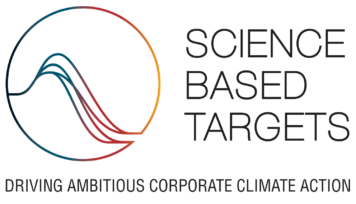The Berner Group has received approval for its science-based emission reduction targets from the Science Based Targets Initiative (SBTi). The targets, which extend to 2030, also separately include FLAG emissions related to land use.

The Science Based Targets Initiative (SBTi) is a global organization that helps companies set ambitious emission reduction targets based on the latest climate science. The SBTi targets are a key part of Berner’s continuous development of climate and environmental work, and thus play a significant role in Berner’s “Shared Responsibilities” sustainability program.
The Berner Group’s targets, covering its four business areas, include reductions in the Group’s direct emissions (Scope 1 and 2), value chain emissions (Scope 3), and FLAG emissions (Forest, Land, Agriculture, Scope 3). FLAG emissions result from land use changes and land use activities when the commodities or raw materials used by the Berner Group are produced, such as grains, potatoes, and primary production of imported food products. 99% of Berner Group’s total emissions are Scope 3 emissions.
Approved 2030 SBTi emission reduction targets for the Berner Group:
Industry and Energy, Scope 1, 2, and 3
- The Berner Group commits to reduce absolute scope 1 and 2 GHG emissions 42% by 2030 from a 2021 base year.*
- The Berner Group commits to reduce scope 3 GHG emissions 51.6% per million EUR value added by 2030 from a 2021 base year.*
The target is an intensity target, meaning it takes into account business growth or shrinkage.
- The Berner Group further commits to reduce absolute scope 3 GHG emissions from the use of sold products 42% by 2030 from a 2021 base year (sold fuels, category 3.11a).
FLAG (Forest, Land, Agriculture), Scope 3
- The Berner Group commits to reduce absolute scope 3 FLAG GHG emissions 30.3% by 2030 from a 2021 base year.*
- Berner Ltd. also commits to no deforestation across its primary deforestation linked commodities with a target date of December 31, 2025.
“I am extremely pleased and proud of our approved SBTi targets. Science-based emission reduction targets are a significant and tangible demonstration of our commitment to advancing environmental responsibility in practice. Companies have a major role to play in emission reduction efforts, and achieving these targets requires long-term collaboration across the entire value chain,” says Antti Korpiniemi, CEO of Berner Ltd.
Carbon roadmaps guide the achievement of targets
Berner Group’s carbon roadmaps guide emission reduction efforts and contain concrete steps to achieve the targets. Ongoing initiatives for the company’s own operations include increasing the use of green electricity and district heating, as well as improving energy efficiency at production facilities. A good example of this is the heat recovery investment recently announced by our subsidiary Chemigate Ltd., which aims to cut CO2 emissions by over 900 tons.
Terms
• Scope 1 emissions: e.g., fuel used in leased cars and production heat generation
• Scope 2 emissions: purchased electricity and heat
• Scope 3 emissions: purchased products and services, transportation, product use
• FLAG emissions: Forest, Land, Agriculture, i.e., emissions from land use changes and land use when Berner Group’s products or raw materials are produced, such as grains, potatoes, and primary production of imported food.
• * *The target boundary includes land-related emissions and removals from bioenergy feedstocks.
• **The target includes FLAG emissions and removals.
For more information:
Heini Koivistoinen, Quality and Environmental Manager, Berner Ltd.
heini.koivistoinen@berner.fi